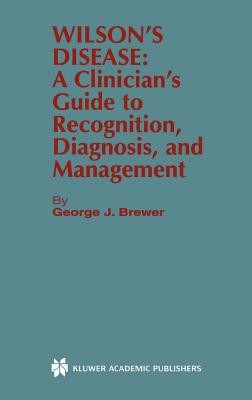
- We will send in 10–14 business days.
- Author: George J Brewer
- Publisher: Springer
- ISBN-10: 0792373545
- ISBN-13: 9780792373544
- Format: 15.6 x 23.4 x 1.4 cm, hardcover
- Language: English
- SAVE -10% with code: EXTRA
Reviews
Description
Movement disorder specialists, general neurologists, hepatologists, general gastroenterologists, and psychiatrists are the specialists who will most likely see some Wilson's disease patients during their careers. See them - yes. Recognize and diagnose them - maybe. If you are in one of these specialties, and a patient with tremor, hepatitis, cirrhosis, apparent Parkinsonism, or mood disorder, is referred to you, will you appropriately recognize the possibility that the underlying diagnosis may be Wilson's disease? Wilson's disease is both treatable and reversible, and commonly misdiagnosed. This book aims to change this with comprehensive coverage of every aspect of Wilson's disease, from well-catalogued, easy-to-use clinical diagnostic tools to treatment methods to molecular biology.
Dr. Brewer is the world's leading expert on Wilson's disease, seeing and caring for over 300 patients with the disease during the last 20 years. He is a professor of human genetics at the University of Michigan.
EXTRA 10 % discount with code: EXTRA
The promotion ends in 17d.09:57:41
The discount code is valid when purchasing from 10 €. Discounts do not stack.
- Author: George J Brewer
- Publisher: Springer
- ISBN-10: 0792373545
- ISBN-13: 9780792373544
- Format: 15.6 x 23.4 x 1.4 cm, hardcover
- Language: English English
Movement disorder specialists, general neurologists, hepatologists, general gastroenterologists, and psychiatrists are the specialists who will most likely see some Wilson's disease patients during their careers. See them - yes. Recognize and diagnose them - maybe. If you are in one of these specialties, and a patient with tremor, hepatitis, cirrhosis, apparent Parkinsonism, or mood disorder, is referred to you, will you appropriately recognize the possibility that the underlying diagnosis may be Wilson's disease? Wilson's disease is both treatable and reversible, and commonly misdiagnosed. This book aims to change this with comprehensive coverage of every aspect of Wilson's disease, from well-catalogued, easy-to-use clinical diagnostic tools to treatment methods to molecular biology.
Dr. Brewer is the world's leading expert on Wilson's disease, seeing and caring for over 300 patients with the disease during the last 20 years. He is a professor of human genetics at the University of Michigan.


Reviews